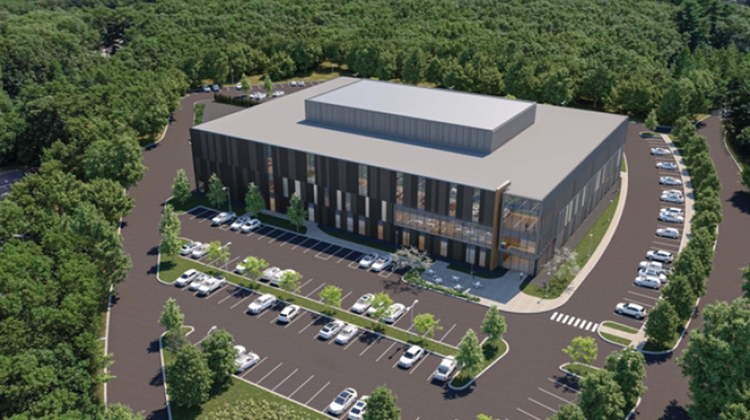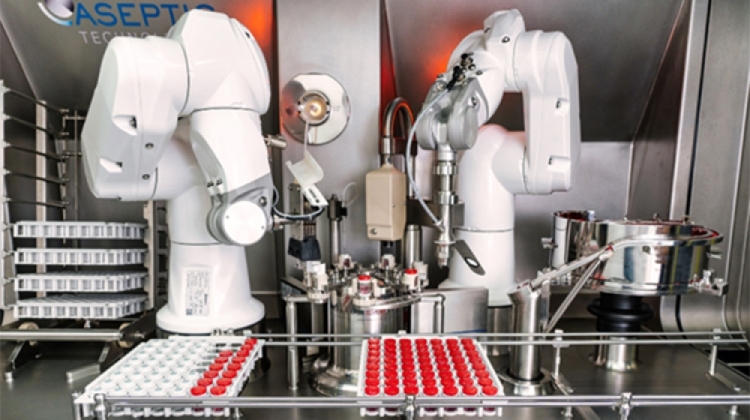
2024 ISPE Biotechnology Conference
Thank you to all who made the 2024 ISPE Biotechnology Conference such a big success!

Please Note
All full-access registration (virtual and in-person) includes access to speaker presentations, on-demand content, and other conference material.
NOTE: Material is only available from those speakers/companies that permitted distribution.
Registrants will receive email notification when the on-demand content is available.
On-demand content is accessible for 90 days.
2024 ISPE Biotechnology Conference

Thank you to all those who attended the 2024 ISPE Biotechnology Conference, and a big thank you to the sponsors for making this conference possible, and the program committee for curating an in-depth and interactive experience for attendees to expand their knowledge in the pharmaceutical manufacturing industry.
Your Conference Experience
Discover the future of biotechnology at the 2024 ISPE Biotechnology Conference.

Expo Hall
Expo Hall
Explore groundbreaking innovations and network with industry leaders at our dynamic expo hall.

Networking
Networking
Connect with top industry experts and expand your professional network at our exclusive networking sessions.

Live Streams
Live Streams
Experience the conference from anywhere with our interactive live stream.

On-Demand Content
On-Demand Content
Access exclusive conference content anytime with our on-demand library for 90 days.
Conference Highlights

Learn the Blank Slate to Building Excellence at the 2024 ISPE Biotechnology Conference
ISPE connected with Sydney Hamilton, Strategic Facility Planner, CRB, and Scott McNallan, Director of Architectural Design, CRB, for a sneak peek look at their planned session, “Blank Slate to Building Excellence,” ahead of the 2024 ISPE Biotechnology Conference. The conference will take place 17-18 June 2024 in Boston, Massachusetts, USA.

Trends and Innovations in Bio-Manufacturing. Global Outlook on the Future of Biopharmaceuticals.
The outlook for the biopharmaceutical market is promising, with expectations that the market will double in the next 10 years, resulting in new therapies and advances in biopharmaceutical manufacturing. This doesn't sound like much at first, but if you consider how the market has developed over the last 20 years, a doubling in the next 10 years is very significant.

Data Science-Assisted Biopharmaceutical Tech Transfer and Process Characterization
The integration of data science in biopharmaceutical manufacturing, emphasizing data quality, tech transfer efficiency, and process optimization, is the heart of this track. Led by industry experts, discussions explore leveraging digital twins, predictive analytics, and continuous improvement initiatives.
Conference Gallery
Explore Collaborative Advances
Accelerating Biotech Innovation
The 2024 ISPE Biotechnology Conference is a crucial platform for industry leaders, scientists, and regulators to collaborate on the latest advancements in biotechnology.
Enhancing Process Development
Attendees will gain insights into process development enablers, including speed-to-market strategies, sustainable manufacturing practices, and new control strategies.
Exploring Innovative Solutions
This event will explore innovative solutions for cell and gene therapy, ATMPs, and mRNA-based products.
Addressing Challenges and Opportunities
It will address challenges and opportunities in these cutting-edge fields.

International Program Committee
Chair
Director, Process Technology
GlaxoSmithKline
International Board Liaison/Foundation Board Liaison
Vice President, Global Quality Systems and Compliance
Moderna
Women in Pharma Liaison
Senior Director, Quality Control
Alnylam Pharmaceuticals
Director, Life Sciences
Barry-Wehmiller Design Group
Senior Director, Global Engineering & Technology
Johnson & Johnson
Senior Consultant Aseptic Processing & Containment
SKAN AG
Head of Global Quality Audit and External Engagement
Sanofi
Regulatory Advisor
ISPE
Data Engineer - Global MSAT Process Analytics
Thermo Fisher Scientific Brisbane, Australia
Founder
Robur Life Science Advisory AB
Technology Manager Biotechnology
CRB Group GmbH
Emerging Leader
Senior Project Engineer
Barry-Wehmiller Design Group
Genentech Inc
Senior Scientific Advisor
Körber Pharma Austria
Head of Innovation
Körber Pharma Austria GmbH
Emerging Leader
Emerging Leader
Process Engineer II
Genesis AEC
Emerging Leader
Quality Engineer
Barry-Wehmiller Design Group
Emerging Leader
Process Engineer
VTU Engineering Schweiz AG





























